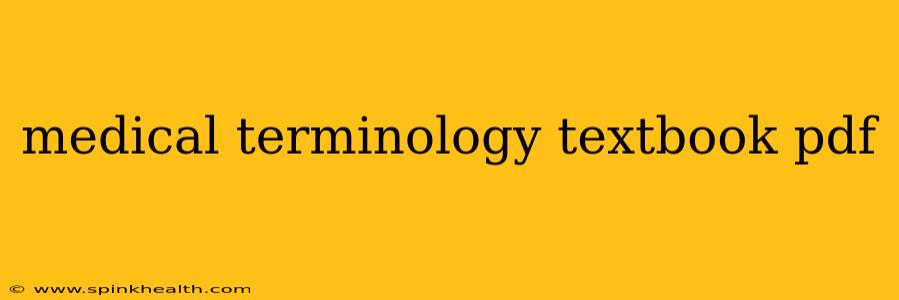Unlocking the Secrets of the Human Body: A Journey Through Medical Terminology
Have you ever opened a medical chart and felt like you were reading a foreign language? The world of medicine is filled with fascinating complexities, but understanding its specialized vocabulary—medical terminology—is key to navigating its intricacies. This isn't just for doctors and nurses; grasping medical terminology empowers patients, caregivers, and anyone curious about the human body and its functions. This exploration will guide you through the essentials, unraveling the mysteries behind those seemingly indecipherable terms.
What is Medical Terminology and Why is it Important?
Medical terminology is a system of combining word parts—prefixes, suffixes, and roots—to create precise terms describing medical conditions, procedures, and anatomical structures. Imagine it as a sophisticated language built on a set of fundamental building blocks. Why is understanding this language so crucial? It empowers individuals to:
- Communicate effectively with healthcare providers: Clear communication is paramount. Understanding the terms used ensures you’re on the same page as your doctor, fostering better understanding and care.
- Comprehend medical information: Whether it's a doctor's explanation, a medical report, or online health information, deciphering medical terminology is vital for comprehending your health status and treatment options.
- Advocate for your own health: Knowledge is power. Understanding medical terms allows you to participate more actively in your healthcare decisions and advocate for the best possible care.
- Explore careers in healthcare: For those aspiring to careers in the medical field, mastering medical terminology is a fundamental prerequisite.
How to Learn Medical Terminology Effectively: A Step-by-Step Approach
Learning medical terminology might seem daunting, but a structured approach makes the process significantly easier. It’s less about memorization and more about understanding the underlying structure.
- Master the Building Blocks: Focus on learning common prefixes, suffixes, and roots. These are the core components of medical terms. Think of them as puzzle pieces; once you understand the individual pieces, you can assemble numerous terms.
- Combine and Conquer: Practice combining these word parts to create and decipher terms. Start with simple combinations and gradually move to more complex ones. Flashcards, online quizzes, and interactive exercises can be invaluable.
- Context is King: Always try to understand the context in which a term is used. This enhances your comprehension and helps you remember the meaning better.
- Utilize Resources: Numerous resources are available, including textbooks, online courses, and medical dictionaries. Explore different resources to find a learning style that suits you best.
- Practice Consistently: Regular practice is key to solidifying your knowledge. Consistent effort, even in short bursts, is more effective than sporadic cramming.
Where can I find reliable medical terminology resources?
Many resources exist beyond simple textbooks. Medical schools and universities often have online resources available to the public, offering detailed explanations and interactive exercises. Additionally, numerous reputable websites and online courses provide structured learning paths to master medical terminology. It's crucial to choose reliable and trustworthy sources when searching for learning materials. Look for resources affiliated with established medical institutions or universities.
Are there free medical terminology resources online?
Yes, many free online resources can help you learn medical terminology. These might include online dictionaries, quizzes, and even introductory courses offered by educational institutions or organizations. However, the quality and depth of these resources can vary. It’s always wise to cross-reference information found online with multiple sources to ensure accuracy.
What are some common prefixes, suffixes, and root words in medical terminology?
This is where the real power lies! Let's look at a few examples:
- Prefixes: cardi (heart), hepat (liver), neuro (nerve)
- Suffixes: -itis (inflammation), -ectomy (surgical removal), -ology (study of)
- Roots: derm (skin), gastr (stomach), pulmon (lung)
By understanding these basic components, you can decipher terms like hepatitis (inflammation of the liver) or cardiology (the study of the heart).
The Ongoing Journey of Learning
Learning medical terminology is a continuous process. As you encounter new terms, add them to your vocabulary. Don't be afraid to look up unfamiliar words. Embrace the challenge, and you'll soon find yourself confidently navigating the fascinating world of medical language. The rewards—better health literacy and enhanced communication with healthcare professionals—are immeasurable.

